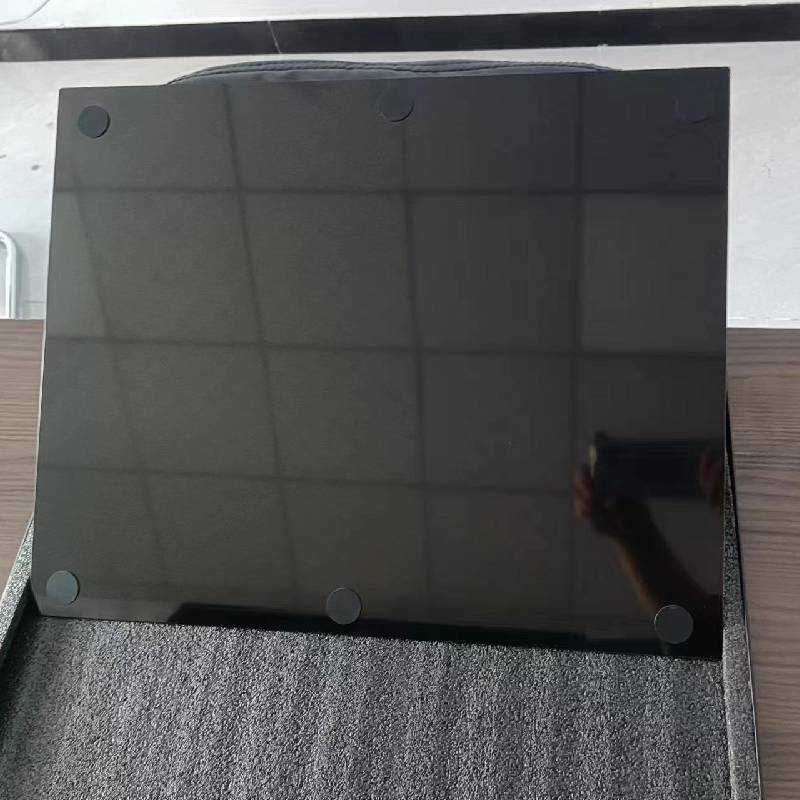Understanding Float Glass Panels A Comprehensive Overview
Float glass panels, a cornerstone in the modern construction and manufacturing industries, represent a significant advancement in glass technology. This type of glass is known for its clarity, uniformity, and versatility, making it a popular choice for a myriad of applications ranging from architecture to automotive manufacturing. In this article, we will explore the process of producing float glass, its properties, applications, and benefits.
The Production Process
The float glass manufacturing process was developed in the 1950s and has since revolutionized the way glass is produced. The name float glass originates from the method in which this type of glass is created. The process involves melting raw materials, such as silica sand, soda ash, and limestone, at high temperatures to form molten glass. This molten glass is then poured onto a surface of molten tin, allowing it to spread out and float. The liquid tin provides a perfectly flat surface, ensuring that the resultant glass panel is smooth and free of imperfections.
As the glass cools, it undergoes a process known as annealing, where it is gradually cooled to relieve internal stresses. Once cooled, the glass is cut into sheets of various sizes, polished, and prepared for use. This intricate process not only enhances the quality of the glass but also significantly increases its durability and stability.
Properties of Float Glass
Float glass is renowned for its numerous desirable properties. Firstly, its optical clarity is exceptional, allowing for high levels of light transmission. This is particularly important in applications such as windows and facades, where natural light is a fundamental consideration. Furthermore, float glass is chemically resistant and can withstand a range of environmental conditions, making it suitable for both indoor and outdoor use.
Another notable characteristic of float glass is its uniform thickness. The production process results in glass panels with consistent dimensions, an essential factor for installation accuracy and aesthetic appeal. Additionally, float glass can be manufactured in various thicknesses, which impacts its strength and applicability.
float glass panel
Applications of Float Glass
The versatility of float glass makes it appropriate for a vast array of applications. In architectural design, it is commonly used for windows, doors, and exterior facades, allowing for maximum light exposure while providing transparency and a modern aesthetic. Float glass is also employed in interior design, with applications including glass partitions, furniture, and decorative elements.
In the automotive industry, float glass is utilized in the production of windshields and windows. Its ability to be curved and treated makes it ideal for vehicle manufacturing, enhancing both safety and style. Furthermore, in the electronics sector, float glass is used in the production of screens and displays due to its high transparency and smooth surface.
Benefits of Float Glass Panels
There are numerous benefits associated with the use of float glass panels. For builders and architects, the ability to create large sheets with minimal imperfections allows for greater design flexibility and creative expression. Additionally, the high light transmittance of float glass contributes to energy efficiency in buildings, helping to reduce reliance on artificial lighting during the day.
Float glass is also environmentally friendly, as it can be recycled and reused. The glass can be crushed and melted down to produce new sheets, significantly reducing waste in manufacturing processes. This sustainability aspect is gaining importance in the construction industry as eco-friendly practices become more prevalent.
Conclusion
In conclusion, float glass panels are an essential component of contemporary architecture, design, and manufacturing. The innovative production process ensures the highest quality, while the myriad of applications showcases their versatility. As industries continue to prioritize sustainable practices, the benefits of float glass panels will likely see increased recognition. From enhancing the aesthetics of our buildings to contributing to energy efficiency, float glass remains a vital element in our everyday lives. Whether used in an office building, a car, or a smartphone, float glass panels exemplify the intersection of technology and design, making them indispensable in the modern world.
 Afrikaans
Afrikaans  Albanian
Albanian  Amharic
Amharic  Arabic
Arabic  Armenian
Armenian  Azerbaijani
Azerbaijani  Basque
Basque  Belarusian
Belarusian  Bengali
Bengali  Bosnian
Bosnian  Bulgarian
Bulgarian  Catalan
Catalan  Cebuano
Cebuano  Corsican
Corsican  Croatian
Croatian  Czech
Czech  Danish
Danish  Dutch
Dutch  English
English  Esperanto
Esperanto  Estonian
Estonian  Finnish
Finnish  French
French  Frisian
Frisian  Galician
Galician  Georgian
Georgian  German
German  Greek
Greek  Gujarati
Gujarati  Haitian Creole
Haitian Creole  hausa
hausa  hawaiian
hawaiian  Hebrew
Hebrew  Hindi
Hindi  Miao
Miao  Hungarian
Hungarian  Icelandic
Icelandic  igbo
igbo  Indonesian
Indonesian  irish
irish  Italian
Italian  Japanese
Japanese  Javanese
Javanese  Kannada
Kannada  kazakh
kazakh  Khmer
Khmer  Rwandese
Rwandese  Korean
Korean  Kurdish
Kurdish  Kyrgyz
Kyrgyz  Lao
Lao  Latin
Latin  Latvian
Latvian  Lithuanian
Lithuanian  Luxembourgish
Luxembourgish  Macedonian
Macedonian  Malgashi
Malgashi  Malay
Malay  Malayalam
Malayalam  Maltese
Maltese  Maori
Maori  Marathi
Marathi  Mongolian
Mongolian  Myanmar
Myanmar  Nepali
Nepali  Norwegian
Norwegian  Norwegian
Norwegian  Occitan
Occitan  Pashto
Pashto  Persian
Persian  Polish
Polish  Portuguese
Portuguese  Punjabi
Punjabi  Romanian
Romanian  Russian
Russian  Samoan
Samoan  Scottish Gaelic
Scottish Gaelic  Serbian
Serbian  Sesotho
Sesotho  Shona
Shona  Sindhi
Sindhi  Sinhala
Sinhala  Slovak
Slovak  Slovenian
Slovenian  Somali
Somali  Spanish
Spanish  Sundanese
Sundanese  Swahili
Swahili  Swedish
Swedish  Tagalog
Tagalog  Tajik
Tajik  Tamil
Tamil  Tatar
Tatar  Telugu
Telugu  Thai
Thai  Turkish
Turkish  Turkmen
Turkmen  Ukrainian
Ukrainian  Urdu
Urdu  Uighur
Uighur  Uzbek
Uzbek  Vietnamese
Vietnamese  Welsh
Welsh  Bantu
Bantu  Yiddish
Yiddish  Yoruba
Yoruba  Zulu
Zulu 

